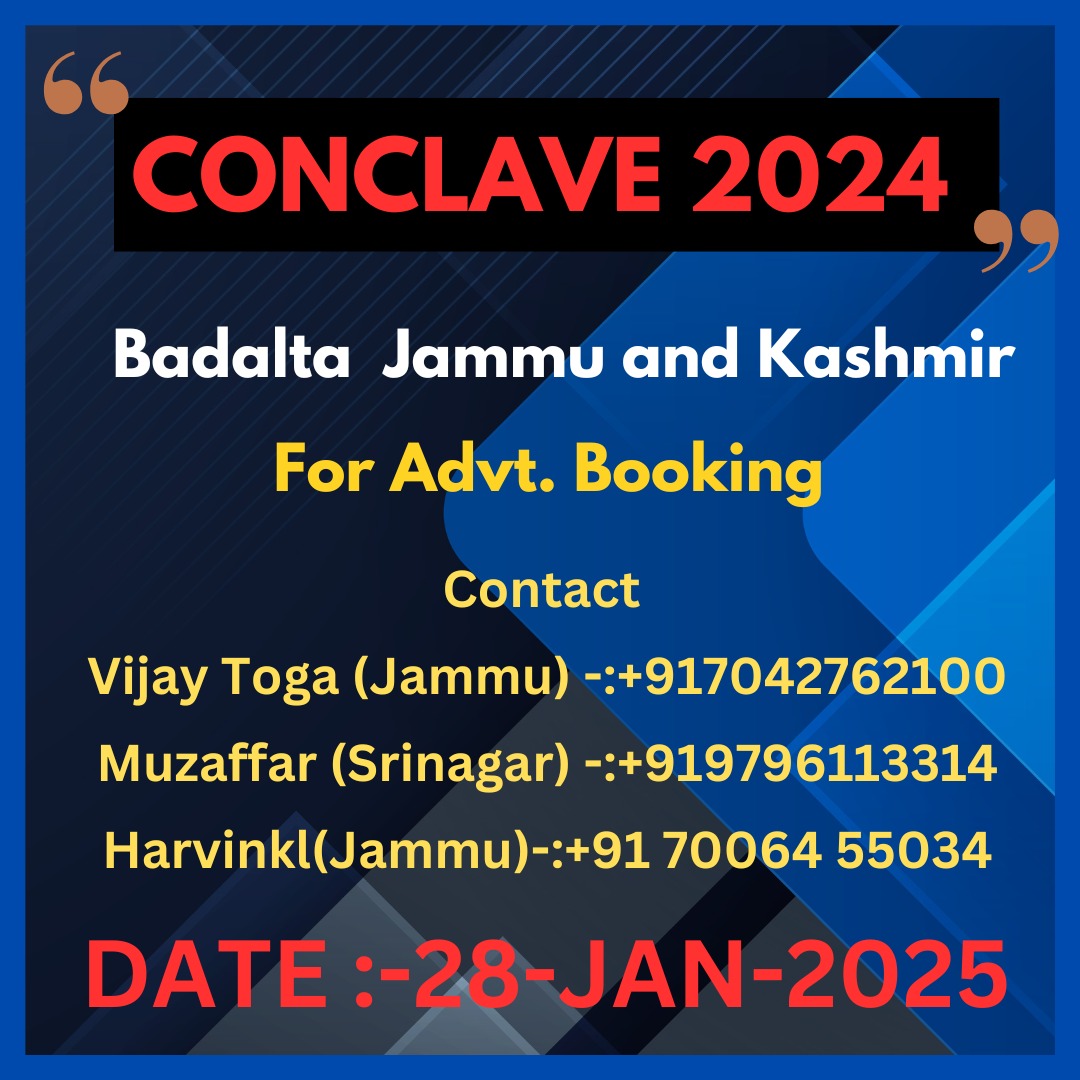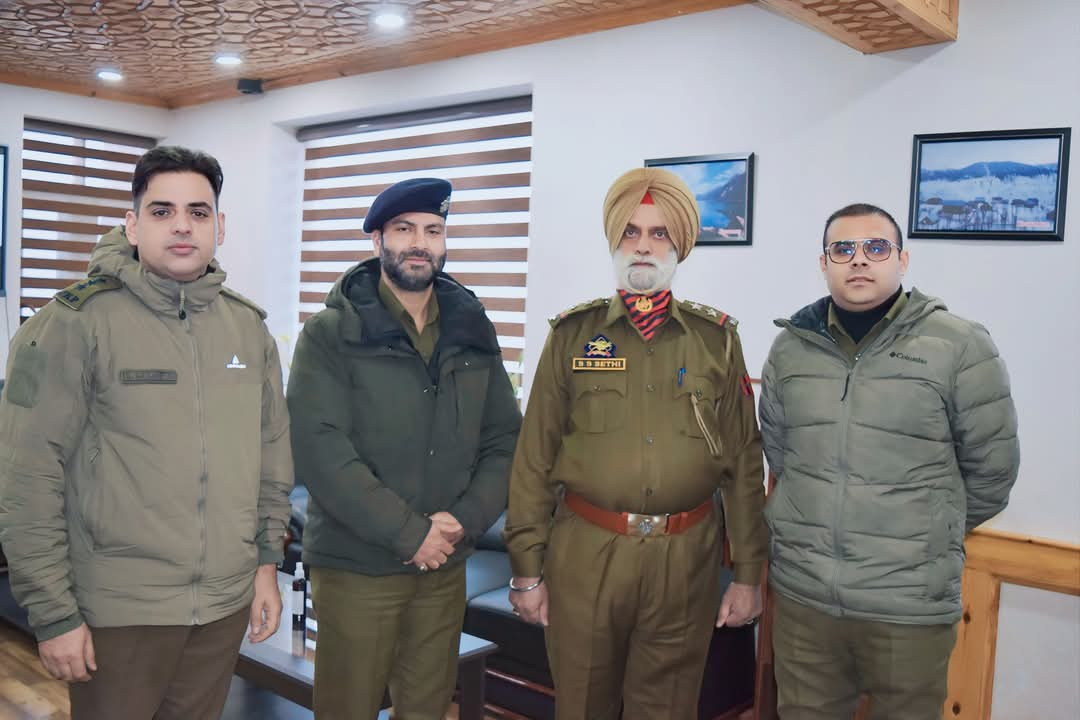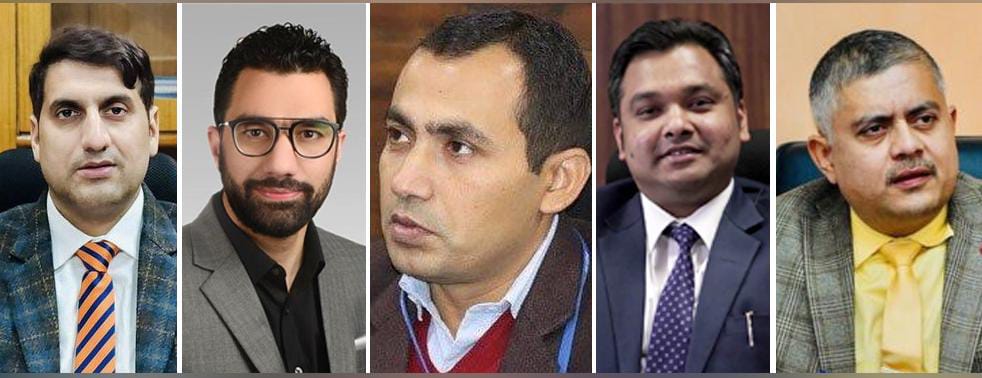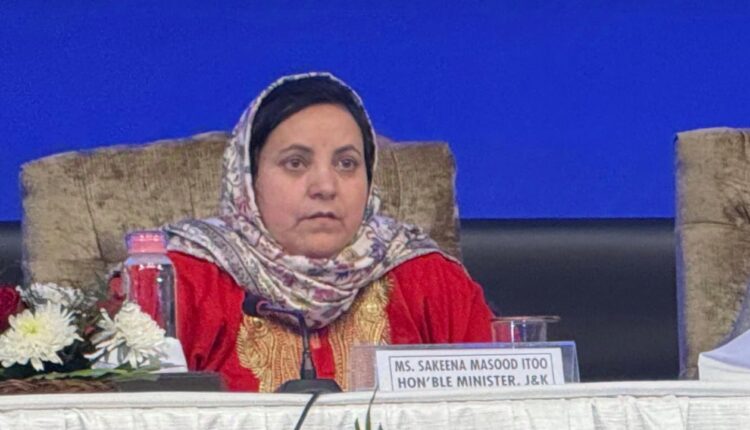In a significant interaction at the Sher-i-Kashmir International Convention Center (SKICC), Chief Minister Omar Abdullah met with members of civil society to discuss key issues, reinforcing his commitment to dignity, democratic values, and sustainable development for the people of Jammu and Kashmir.
Attendees included representatives from various sectors such as Trade, Tourism, Education, Industry, Health, and Transport, as well as Houseboat and Shikara Owners, Judiciary Members and former Civil Services Officers. Ministers and senior government officers, including Deputy Chief Minister Surinder Choudhary, Ministers Sakeena Itoo, Javid Ahmad Dar, Javed Rana, Advisor to Chief Minister Nasir Aslam Wani, Chief Secretary Atal Dulloo and other top administrative and police officials were also present.
Civil Society representatives presented a wide range of concerns and suggestions to the Chief Minister, who engaged attentively in dialogue, emphasizing his government’s commitment to transparency and public welfare.
Reflecting on the fundamental rights of the people, the Chief Minister stated: “In our home, on our own land, don’t we have the right to live with dignity? Should we accept a life of humiliation and harassment wherever we go? We may secure everything that’s been flagged here, whether it’s roads, electricity, or water, but if we can’t live with dignity and our identity lacks value and honor, then all of this holds no real meaning. I want to assure you that we will fight for all that matters, but my first priority is to restore our dignity. We should have the first right to our lands, our employment, and our resources. Only then can we truly say that this country respects our honor and dignity.”
He underscored the importance of regular engagement with civil society, stating that we usually turn to civil society meetings in difficult times, but this time, we initiated the interaction right from the start.
“Establishing a regular contact is essential, and if we can meet at least twice a year, it would be of great significance,” the chief minister maintained. Discussing the need for democratic governance, he said that for the last six years, we had no democratic setup here; there was a gap, and it was bound to create a disconnect.
“This is why people value democratic governments, as they bridge the relationship between the government and the people. Officers cannot replace the work of MLAs, sarpanches, or ministers,” he reiterated and said “Now that a democratic setup is in place, I reiterate that this government belongs to the people of Jammu and Kashmir. We are here to serve you, not for our luxuries.”
The Chief Minister expressed optimism about restoring Jammu and Kashmir’s statehood, saying, “The current arrangement is temporary and I am confident we will regain our statehood. The challenges we face can and will be addressed.”
He further emphasized the need for genuine peace achieved through a cooperative atmosphere, acknowledging that everyone desires a peaceful, conducive environment in Kashmir.
“But I believe true peace requires partnership. It shouldn’t be an enforced calm, but one born out of the will of the people so that they can live their lives peacefully.”
The Chief Minister also highlighted the importance of strengthening democratic institutions and preserving freedom of speech and said that our institutions need to be strengthened. Without freedom of speech, there is no real democracy.
“I know my colleagues and I might often be the first targets of this freedom, but that is the essence of democracy. Press, judiciary, bar associations, labour unions, and other organizations must be strengthened, creating an environment of peace and mutual respect,” the chief minister stated.
Referring to his recent meetings with the Prime Minister and central ministers, Omar Abdullah maintained that he has received assurances from the Prime Minister and other ministers that the central government will support whatever is beneficial for Jammu and Kashmir’s progress.
“While we must strive to stand on our own, we need support and guidance during this transitional phase, and together, we will reach our goal,” Omar said.
The Chief Minister concluded by calling for collective efforts to tackle drug addiction: “Drug addiction is a grave issue that threatens to hollow us from within. The government will play its part, but civil society, religious institutions, and leaders must also step up. I earnestly seek your cooperation in saving our youth from this menace. We must strengthen drug rehabilitation efforts and work together to prevent this blight from taking root.”
Omar assured that in future civil society meetings, an action report on the issues raised today will be presented, marking the beginning of a structured dialogue with periodic engagements to assess progress and identify areas for improvement.
“These discussions will ensure that we work together towards a responsive, transparent, and accountable government,” the Chief Minister affirmed, expressing his gratitude for the constructive input from civil society representatives.









